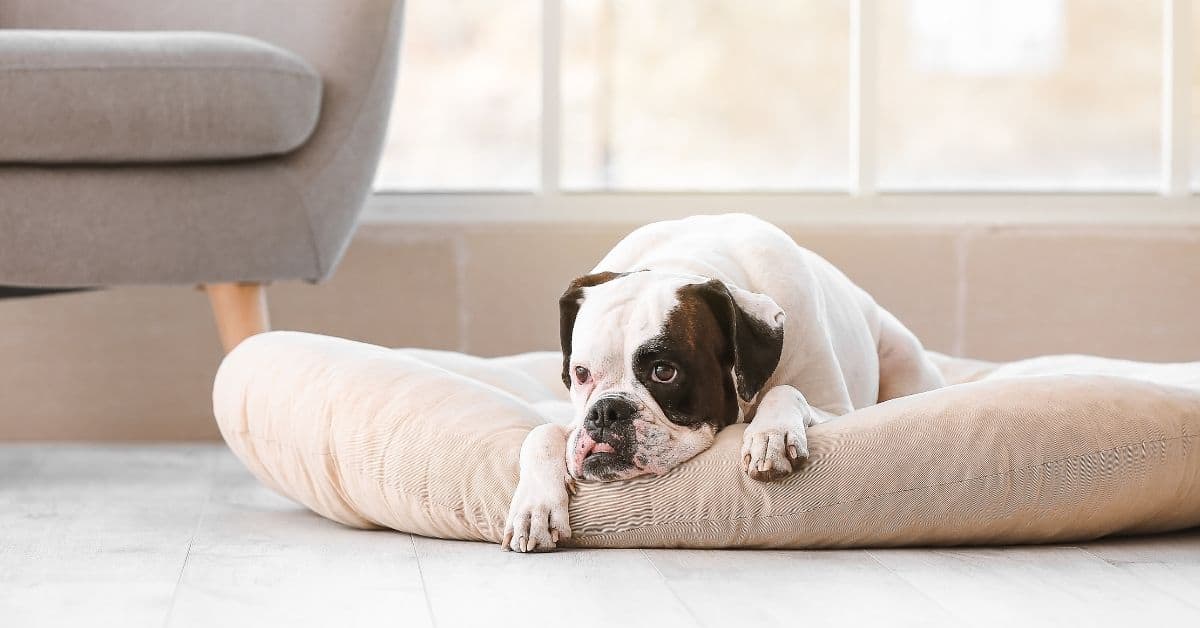As dog owners, many of us have felt sad when we had to leave our furry friends at home while we went to work or ran errands.
We often wonder if our dogs are lonely or anxious without us or if they even notice our absence.
As social animals, dogs often form strong bonds with their owners and become accustomed to having them around.
So, what happens when leaving your dog alone at home?
When we leave the house, dogs may experience various emotions, including anxiety and stress, leading to behaviors such as barking, pacing, and destructive chewing.
These behaviors can be signs of separation anxiety, an actual condition affecting many dogs.
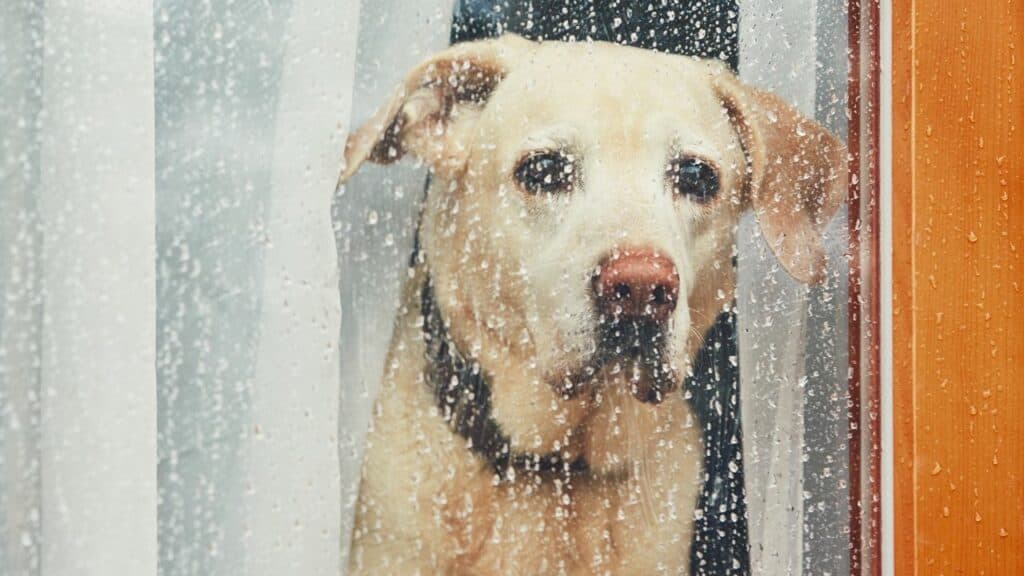
However, when we come home, our dogs often greet us with excitement and affection, which suggests that they do miss us to some extent.
Brain scans have shown that when dogs are around someone they love, they get the hormone oxytocin, which makes them want to bond with that person.
Even though dogs may not be able to feel as many different emotions as people can, they still have feelings.
That means they can feel lonely and sad when their owners aren’t around.
Additionally, dogs have a strong sense of smell and may be able to detect when their owners are coming home.
This can explain why they may wait by the door or become excited as their owner approaches.
It’s important to note that dogs are different; some may show less attachment to their owners than others.
Some dogs may also show less obvious signs that they miss their owners, like becoming more quiet or sleepy when their owners leave.
Owners should observe how their dogs behave when they leave and give them the emotional support they need.
This may include giving their dog enough exercise and mental stimulation, a comfortable place to sleep, and professional counseling for separation anxiety or other concerns.
When dogs are left alone, their behavior can vary depending on their breed, age, personality, and previous experiences.
Some dogs may adjust well to being alone and spend most of their time sleeping, while others may become anxious, restless, or destructive.
Behaviors Dogs May Display When Left Alone
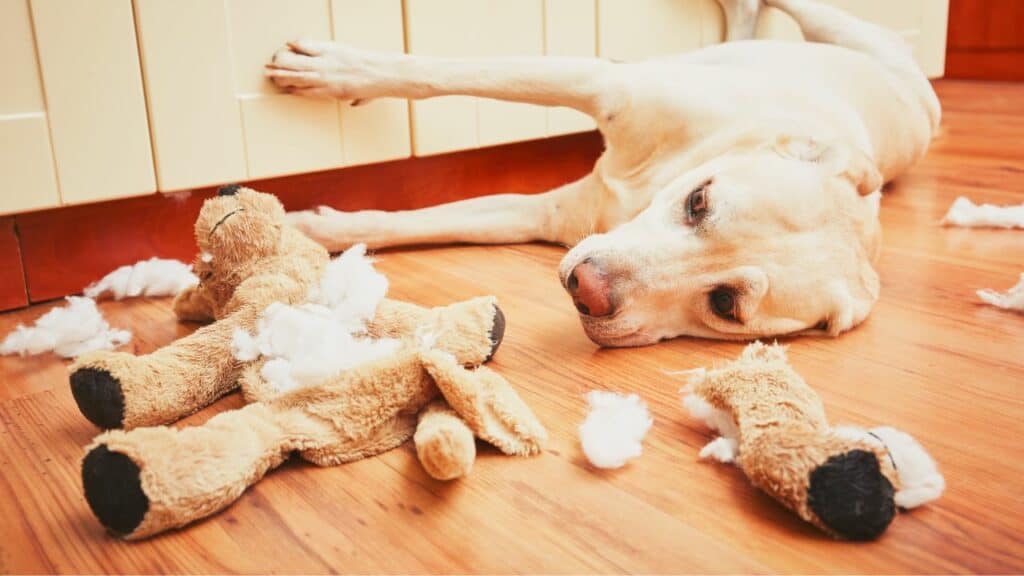
Sleeping: Some dogs may sleep or rest alone, especially if they can access a comfortable bed or a quiet space where they feel safe.
Barking or Howling: Some dogs may bark or howl when alone, especially when anxious or bored. This behavior can be disturbing to neighbors and may result in complaints or legal issues.
Chewing or Destructive Behaviors: Some dogs may engage in destructive behaviors such as chewing on furniture, shoes, or other items when alone. This behavior can indicate anxiety, boredom, lack of proper exercise, or mental stimulation.
Pacing or Whining: Some dogs may pace, circle, or whine when they are alone, especially if they are anxious or stressed. This behavior can be a sign of separation anxiety, a common condition affecting many dogs.
Escaping or Jumping: Some dogs may try to escape or jump over fences, gates, or doors alone, especially if they are anxious, bored, or want to explore. This behavior can be dangerous and may result in injuries or loss of dogs.
How To Reduce These Behaviors?
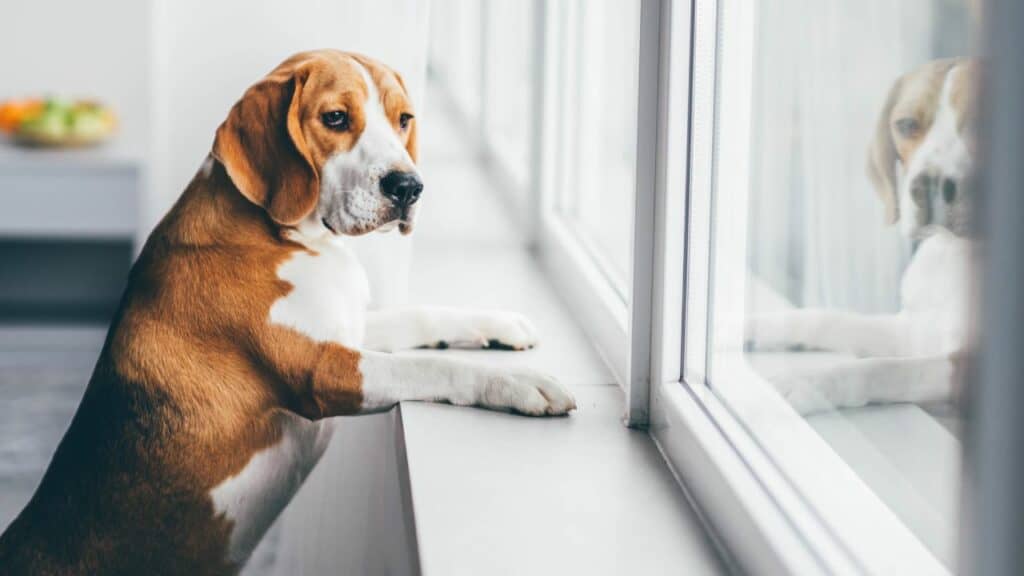
To prevent or reduce these behaviors, it’s important to provide your dog with the necessary care and attention, especially before and after you leave.
Some tips to help your dog feel more comfortable when left alone are the following:
Establish a Routine: Dogs thrive on routine and predictability. Establish a consistent feeding, exercise, and playtime schedule, so your dog knows what to expect.
Provide Mental Stimulation: Dogs need mental stimulation as much as physical exercise. Provide your dog with interactive toys, puzzle games, or treats that can keep them engaged and entertained.
Create a Safe Space: Dogs need a quiet, comfortable space to feel safe and secure. Provide your dog with a cozy bed, blankets, or a crate to retreat when anxious or tired.
Train Your Dog: Training your dog can help them feel more confident and less anxious when left alone. Teach your dog basic obedience commands such as “sit,” “stay,” and “come,” and reward them with treats and praise.
Consider Professional Help: Consider getting help from a vet or a professional dog trainer if your dog has serious separation anxiety, acts destructively, or has other problems when left alone. They can help you figure out why your dog is acting this way and give you a personalized plan to help your dog feel better and happier when you leave.
How Long Can I Leave My Dog Alone?

Leaving a dog alone for too long can have serious mental and physical consequences.
Puppies should be alone for no longer than 3 hours as they need constant companionship and many potty breaks.
Adult dogs require more time to themselves, but any longer than 8-10 hours, your dog may experience separation anxiety or become destructive around the house.
If you must leave yours alone for an extended period, consider hiring a dog walker or having someone check in on your pet while you’re away.
This will ensure your companion gets the attention it needs and deserves, preventing any resulting stress and possible mischief.
Talking about how long dogs can be left alone raises another question: Can dogs tell time?
No, one thing dogs can’t do is tell time.
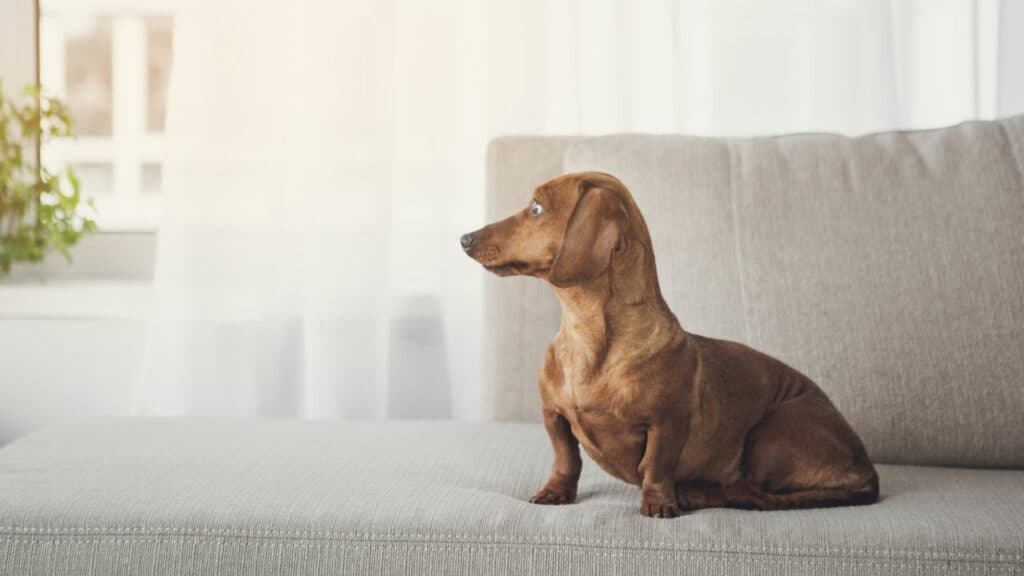
Dogs live now, so they don’t know what ‘time’ means.
Even so, they can notice changes in their environment that may be important to people, like when their daily routine changes or new smells enter the house.
This could be why some dog owners say their dog acts up when it’s almost time to eat or when someone comes home from work later than usual.
But instead of seeing it like a clock, dogs react to small changes that they are already familiar with.
Let’s talk about how long dogs remember us before this video ends.
Studies have suggested that dogs possess an incredible ability to remember their owners.
While the exact length of time that a dog can recall a person is unknown, there is compelling evidence indicating that some dogs may be able to recognize familiar faces for over a decade.
This means that, even if you and your dog are separated for years, he or she will likely still remember you when reunited.
Interestingly, it has also been suggested that our canine companions can recognize the emotions of their past owners.
So, even though his sight may have faded and he’s aged, your pup at home knows who you are before you even walk in the door!
In conclusion, there isn’t enough scientific proof to say for sure that dogs have separation anxiety.
But it seems likely that they do and that they may miss their owners when they leave the house.
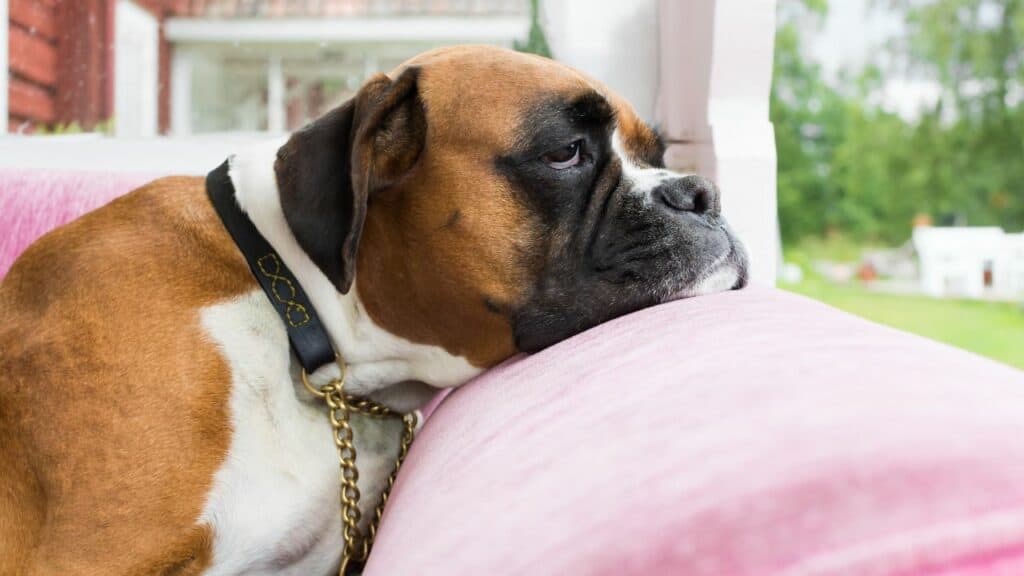
Dogs are social animals that form strong bonds with the people they live with. When their owners leave, their behavior suggests that they may be feeling upset.
But it’s still not clear how much dogs feel like humans do.
More research is needed to fully understand what makes the bond between dogs and humans so strong.
No matter what the science says: it’s clear that dogs bring us joy, love, and companionship.
And we should love and care for them as important family members.
Before You Go…
You now know everything you need to know about leaving your dog alone at home.
If you want to learn more, read the following article too!

